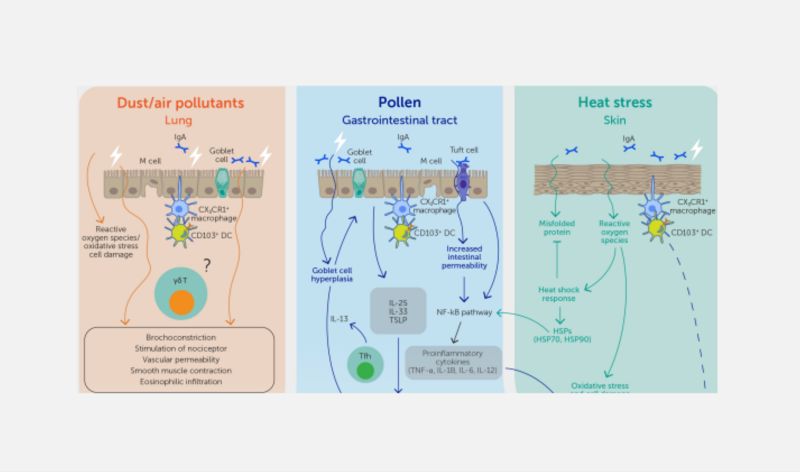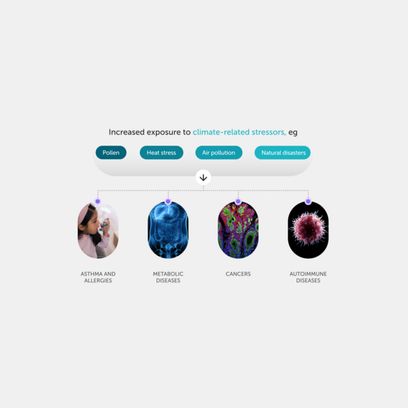
Frontiers in Science Lead Article
Published on 04 Apr 2024
Immune-mediated disease caused by climate change-associated environmental hazards: mitigation and adaptation
- 112,019 views
- 42 citations


Frontiers in Science Lead Article
Published on 04 Apr 2024

At a virtual Frontiers Forum Deep Dive session on 20 June 2024, experts delved into the links between climate change and immune dysregulation, and how to mitigate these.

Prof Marsha Wills-Karp, of Johns Hopkins University, USA, highlights the importance of evidence-based climate mitigation strategies with co-health benefits—and the technological and policy changes needed across multiple sectors for their development and delivery.

Prof Stephen T. Holgate, of the University of Southampton, UK, demonstrates the power of real-world examples for communicating health and risk messaging, and how this can incentivize and drive policy change.

Prof Edward Maibach, of George Mason University, USA, describes the unique and essential role of the health community in building public and political will to transition to a clean energy economy.

Dr Frederico Guanais, of the Organisation for Economic Co-operation and Development, France, argues for the integration of environmental, health, social, and economic policies as an effective strategy for promoting both environmental sustainability and public health.
Climate change is driving an increase in immune-mediated diseases such as asthma, allergies, autoimmune diseases, and cancers.
Anthropogenically driven increases in pollen, wildfires, sand and dust storms, thunderstorms, and heatwaves—with concomitant increases in air pollution, heat stress, and flooding—are altering the human exposome and worsening human health.
Multilevel, multisectoral adaptation and mitigation actions are vital to reduce emissions and improve air quality, provide safe housing, improve diets and agricultural practices, and increase environmental biodiversity and peoples’ exposure to natural environments.
New biomarkers, data science approaches, and economic models are vital to better measure the impact of climate change on health.
Mitigation and adaptation efforts need to be global, equitable, and recognize that the health of the planet is integrally connected to human health.

A summary of the lead article in a Q&A format, with infographics and a video.

A version of the lead article written for—and peer reviewed by—kids aged 8-15 years.

Climate change, pollution, and collapsing biodiversity are damaging our immune systems, but improving the environment offers effective and fast-acting protection.

Improving the environment offers effective and fast-acting protection.

In 2019 alone, more than half a million people died due to a stroke linked to high and low temperatures, a new study found. With the world getting warmer due to human-made climate change, that number is expected to rise.

Many of the effects of climate change play out at a very large scale: Heatwaves that grip entire continents. Flooding that submerges vast swaths of island nations and continental coastal areas. Other effects are far less visible because they’re taking place inside people’s bodies.

Scientists outline causes and solutions for preventing diseases influenced by climate change and linked to the immune system, such as asthma, and even cancer.

The human immune system is actually very adaptable. But the rapid changes caused by climate change are overwhelming it.
Follow the science, follow Frontiers in Science